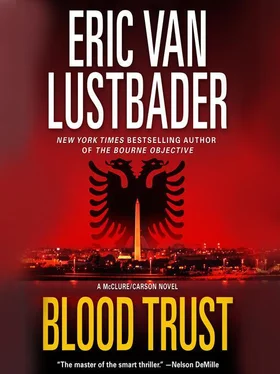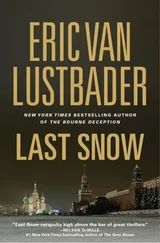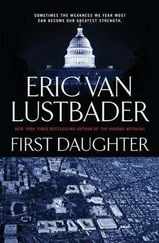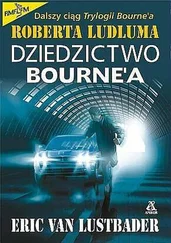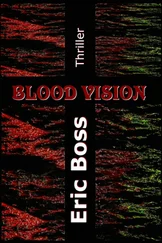—Terms I’ll understand.
“If you like. Anyway, I can see now that the criminal personality—Dad, you’ll really like this—is formed from two sides of a coin, both terribly dark. On one side, criminality is born of misdirected resentment, a logic, if you want to call it that, of self-destruction. Remember how you and I were drawn to the paintings of Paul Gauguin? At one point, his beautiful, mysterious work was the only thing we could agree on. You know why, Dad? Because of his philosophy. He wrote, ‘Life being what it is, one dreams of revenge.’ An Impressionist painter wrote that! Can you believe it?
“Anyway, the other side stems from being totally self-absorbed, like the Roman Emperor Nero. What the hell, the little prick inherited virtually limitless power before he had a chance to grow up. To him, no one outside of himself was real—what happened to them didn’t matter in the slightest, so murder, rape, torture, and mayhem were beneath his notice.”
Good God, Jack thought. This can’t be happening. And yet, he couldn’t help himself …
—Where is she, Emma?
“Where’s who?”
—You know. Annika. Where is she?
“You swore you never wanted to see her again.”
—That was almost a year ago. A lifetime.
“Even if I did know, Dad, I couldn’t tell you. I’m not your guide through this darkness.”
Did she know? Jack wondered. And then realized he had said it out loud.
“Jack?”
He almost cracked his neck, turning around so fast. Naomi and McKinsey had reentered Twilight.
“We lost them,” she said.
McKinsey, looking around, said, “Does who know?” He couldn’t keep a smirk off his face. “Who were you talking to?”
Ignoring his comment, Jack told them about the fractured left eye socket that linked the murders here with Billy Warren’s.
“That exonerates Alli,” Naomi said with clear relief.
McKinsey shook his head. “Or it could signal that she’s not in it alone.”
“Don’t be absurd,” Naomi said. “You don’t know her.”
“In my experience,” he told her, “nobody knows anyone. Not really.”
Jack wanted to move in a more fruitful direction. “Look what I found.” He showed them the badge. “The manager was clutching it in his fist, as if he wanted to protect it from O’Banion and Willowicz.” As they examined it in turn, he said, “Either of you make any sense of the writing?”
As they were shaking their heads sirens sounded, rapidly approaching.
Naomi took the badge, fingering it as if the writing were in braille. “I think I know someone who can help us.”
“I bet my wife knows plenty of linguists,” McKinsey said. “She’s a professor at Georgetown.”
“The person I’m thinking of isn’t a linguist.” Naomi was turning the badge over and over, as if trying to coax a sense memory from it. “I think I’ve seen something like this before.” She glanced up at Jack with a penetrating look. “If I’m right, we’re headed into a very dark place.”
* * *
ALLI SLEPT because of exhaustion, but also to escape the horror of the present, the gruesome image of Billy bound to the tree, blue-white as the moon, and just as distant.
Curled in her uncle’s wing chair, she was dreaming about the last snow of winter. It drifted down upon the vast, terrifying expanse of Moscow’s Red Square like glittering confetti. Lights that illuminated the onion domes of Saint Basil’s seemed to enlarge each flake to a monstrous size. Alli breathed in the frozen, knifing wind as she ran through the clusters of tourists, Red Army soldiers, and cassocked Russian Orthodox priests—robins, hawks, and ravens picking over the ground for sustenance.
She ran in frantic circles, as if lost, rudderless, without any thought save to find Annika. A strange form of hysteria gripped her, as if she were dying, and only Annika could save her. She pushed past people, who whirled like the snowflakes, their eyebrows and lashes powdered white, their eyes staring past her as if she didn’t exist, or was already dead. Her dread increased exponentially, tightening her chest, making her heart pound as if she were running a long and terrible race.
And, against all odds, she saw Annika, light hair and deep mineral eyes, outlined against the stark, massive edifice of the Kremlin. She was staring at Alli, but made no move toward her as Alli struggled against the tide of people that tried to pull her away toward the dark, shadowed fringes of Red Square where certain death lurked like a staircase at night. Still, she kept struggling forward, only to find that she was in a different section of Red Square altogether, seeing Annika from a different angle, now closer, now farther away. Grimly, she pressed on, determined.
Then, all at once, breathless and on the verge of tears, she stood before Annika, who was dressed in an ankle-length coat embedded with the bones of what might be small animals. Alli wanted nothing more than for Annika to take her in her arms and rock her like a child.
But Annika said, “Why have you come all this way to see me? Life is a doomed enterprise.”
“I need to talk to you.”
“Talk is a hopeless activity, like looking at a blank page.”
“Please don’t say that!”
“Would you rather I lie to you?”
“You lied to Jack.”
“But not to you, never to you.”
“You lied to him, don’t you see it’s the same thing.”
“I lied to protect him, I lied because I loved him.”
“Do you love him still?”
Annika looked at her pitilessly. “How can I help you?”
“Please answer me.”
“Why? Would you understand? What do you know of love, how it can shape a heart, how it can twist it, shatter it. Have you experienced irretrievable loss?”
“Yes, yes! We both have. We’re the same, you and I—”
“No, Alli. I am darkness, I am death.” She stepped away into the spiraling snow, and called back, her voice echoing off the walls of the monolithic Kremlin and Saint Basil’s, “Don’t come after me.…”
Alli awoke with an unpleasant start. Her heart was pounding so hard it hurt. She looked around, disoriented, surprised to find herself still in her uncle’s study. Her vision was blurry. When she put her hand up to her face her fingers came away wet with tears. She had been crying in her sleep.
She leapt off the chair as if she had received an electric shock, and turned when she heard the door open. Rudy, the guard who looked like an ex-professional wrestler, came into the study. He closed the door behind him and picked his way across the polished wooden floorboards toward her. He had an odd, almost delicate way of walking that was entirely silent, as if he were barefoot. She watched him, fascinated, as he put his right foot in the precise location his left foot had just vacated.
It was only when he was very close, and about to swing it, that she saw the iron poker in his hand.
EIGHT
DIME-STORE SLIM had one hand. Seemingly, he was proud of it, or rather the stump, which had ingenious metal pincers affixed to it, as if he was in the process of turning into a crab-man or the creature from Predator.
He certainly had a personality to match, Jack thought, as Naomi Wilde introduced him and McKinsey. Dime-Store Slim was very tall, very narrow, and very dark-skinned. He had kinky hair, which he wore in a 70s-style Afro, like an outrageous hat on a runway model. On him, though, it looked ominous rather than incongruous or theatrical, as if that pitch-black cloud of unknowing could reach out and swallow you alive.
Dime-Store Slim liked to shake hands with his pincers, which he proffered in an unavoidable gesture. In fact, he thought it was hilarious to witness other people’s consternation and embarrassment. In contradiction to his slight frame, he exuded a powerful menace that was impossible to ignore or to deflect. You simply had to deal with it, Jack realized, long before McKinsey did. He was amused to see how uncomfortable Slim made the Secret Service agent.
Читать дальше
